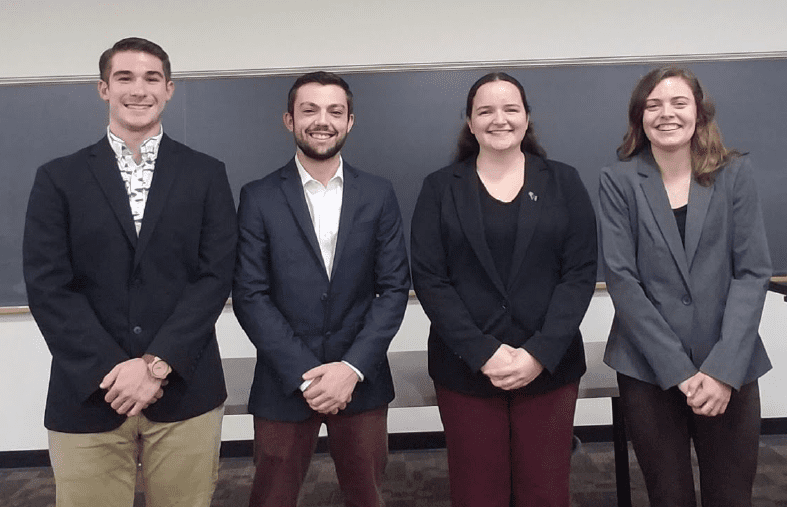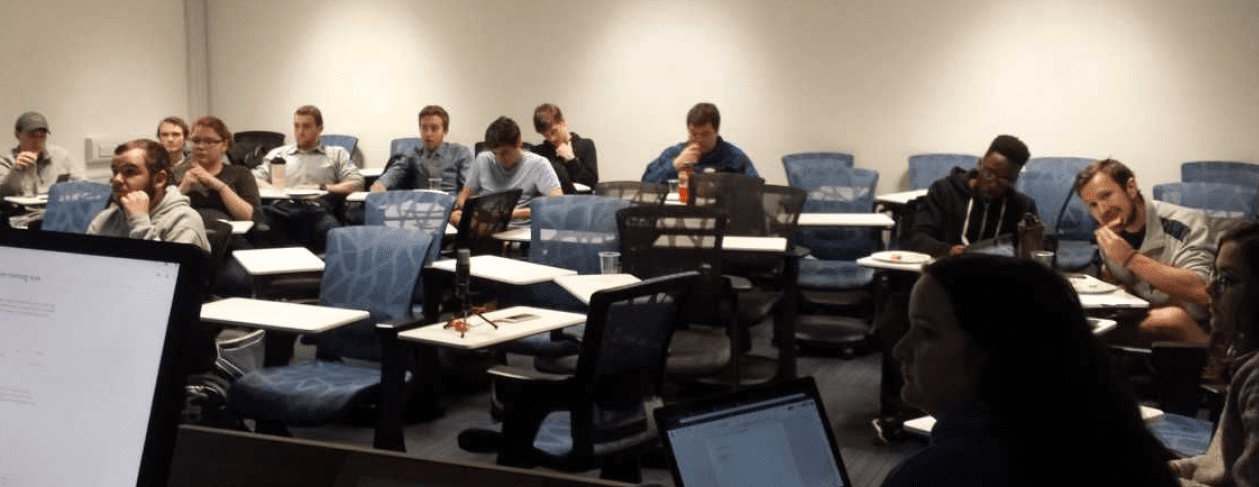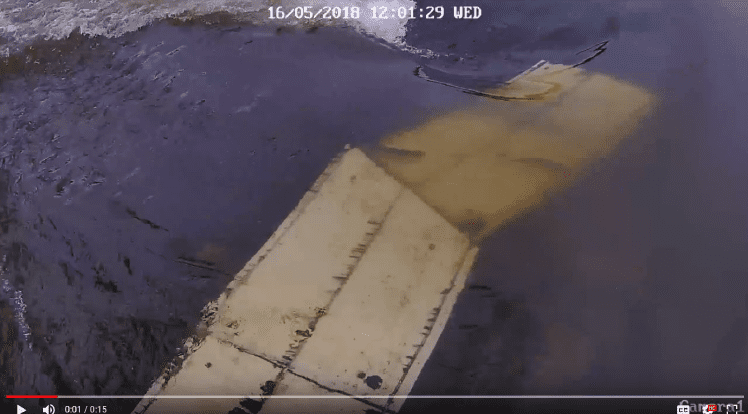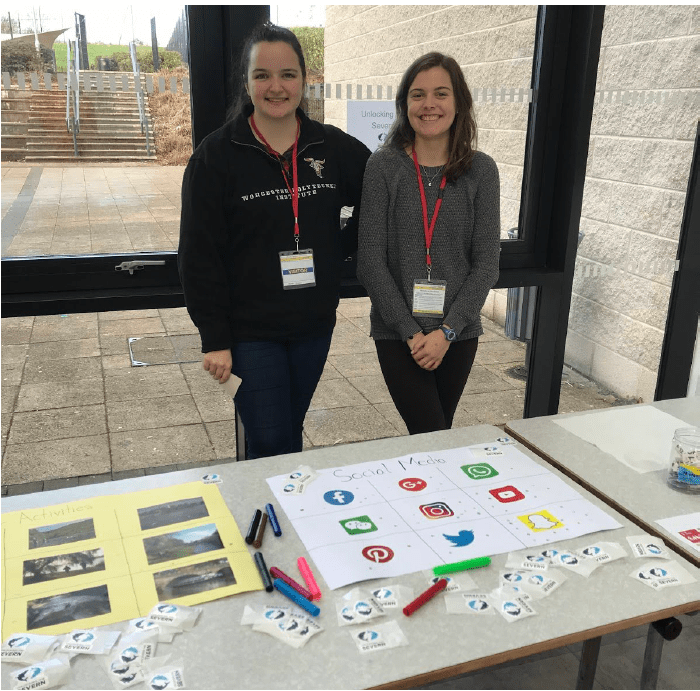Hello!
We are students from Worcester Polytechnic Institute (WPI), located in Worcester, Massachusetts in the USA. We were in Worcester, UK to complete a project as part of our degree requirements. The four of us that make up this team are in our third of four years of university. We are working with the Severn Rivers Trust (SRT) on their Unlocking the Severn project, a collaborative effort between the SRT, the Canal & Rivers Trust, the Environmental Agency, and Natural England.
The WPI Team: Mike Corace, Alex Baldino, Trinity Tedtsen, and Nicole Mattson (left to right)
The aim of this project is to install fish passes in locks and weirs on the river to allow the numerous species within the river to migrate upstream to spawn. Additionally, the project partners would like to increase community awareness of the heritage of the river.
A specific fish species found within the river, the twaite shad, is currently protected by UK law as a priority species. “Unlocking” the river will allow for this fish, along with many others, to spawn in areas of the river they could not previously reach. The Diglis Weir where a vertical slot fish pass and observation chamber is being put in Our job in this project was to develop recommendations to recruit “younger volunteers” in the 16-25 age cohort.
This age group is significantly underrepresented in SRT volunteers, creating a gap in the community engagement aspect of the project.
To begin, we analysed data already gathered by the SRT to determine any relationships between age and volunteer preferences. We then began surveying potential volunteers in the target age group to gather data. We used this data to determine potential marketing materials designed to attract these potential volunteers. Then, we determined the effectiveness of marketing materials by conducting focus groups of university students.
Focus Group Discussion
These focus groups helped determine which marketing materials would be successful and which were better left out. Materials inquired about included Unlocking the Severn branding, mock-ups of flyers/social media posts, and photographs from volunteering. These focus groups allowed us to edit the campaign before presenting an Action Plan to the SRT. Additionally, we developed a plan for an online citizen science platform to monitor fish migration in the river. Videos of fish swimming through fish passes will be uploaded to the website for volunteers to count, an example of this can be seen below. This will allow for the SRT to gather large amounts of data as well as spread awareness of the twaite shad.
Screenshot of SRT video showing shad swim over a fish pass.
We used dot voting to gather opinions of secondary school students who are just outside of the target age range, at 14-15 years old. To do this, we collaborated with the Skills for Tomorrow Development Team, another group of students from WPI. We brought posters to the conference and asked students to vote on their favourite type of volunteering, social media platforms, and activities they do by the river. They simply stamped on the poster by the photo of what they wanted to vote for. A photo from the conference can be seen below.
Dot Voting being done at the Skills for Tomorrow Conference
The work we did culminated in two sets of recommendations for the SRT. One outlines ideas for marketing to 16-25 year olds and the other outlines ideas for the fish monitoring citizen science website.



